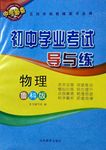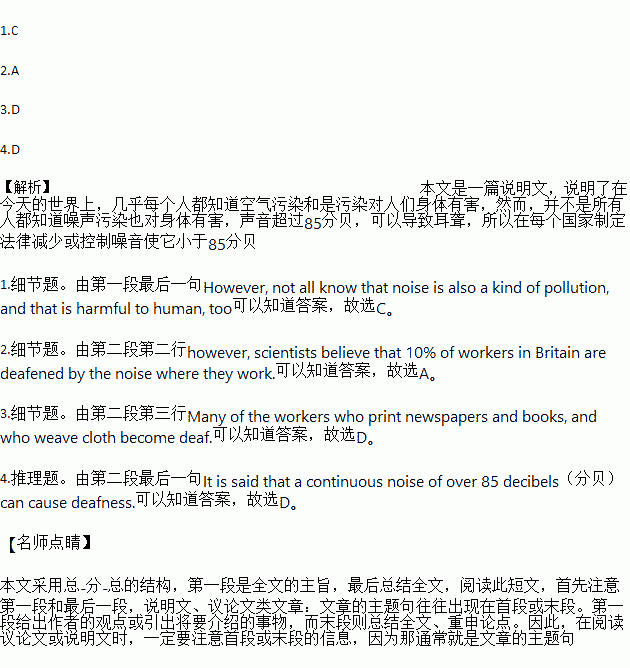题目内容
In today's world, almost everyone knows that air pollution and water pollution are harmful to people's health. However, not all the persons know that noise is also a kind of pollution, and that is harmful to human health, too.
People who work and live under noisy conditions usually become deaf(聋). Today, however, scientists believe that 10 percent of workers in Britain are being deafened by the noise where they work. Many of the workers who print newspapers and books, and who weave(织)cloth become deaf. Quite a few people living near airports also become deaf. Recently it was discovered that many teenagers in America could hear no better than 65-year-old persons, for these young people like to listen to pop music and most of pop music is a kind of noise. Besides, noise produced by jet planes or machines will make people's life difficult and unpleasant, or even make people ill or even drive them mad.
It is said that a continuous noise of over 85 decibels(分贝)can make people deaf. Now the governments in many countries have made laws to control noise and make it less than 85 decibels.
In China, the government is trying to solve not only air and water pollution problems but also noise pollution problems.
1.The text is mainly about ____________ .
A. air pollution B. water pollution
C. noise pollution D. world pollution
2.Ten percent of the workers in Britain are being deafened because ________.
A. they are working in noisy places B. they often listen to pop music
C. they live near airports D. they are too busy to listen to others' talk
3.According to the text, a continuous noise of _________ decibels can make people deaf.
A. less than 85 B. less than 65
C. about 65 D. over 85
4.The government of China is trying to solve _______________ .
A. only air pollution B. only air and water pollution
C. only water pollution D. air, water and noise pollution
 七星图书口算速算天天练系列答案
七星图书口算速算天天练系列答案 初中学业考试导与练系列答案
初中学业考试导与练系列答案
